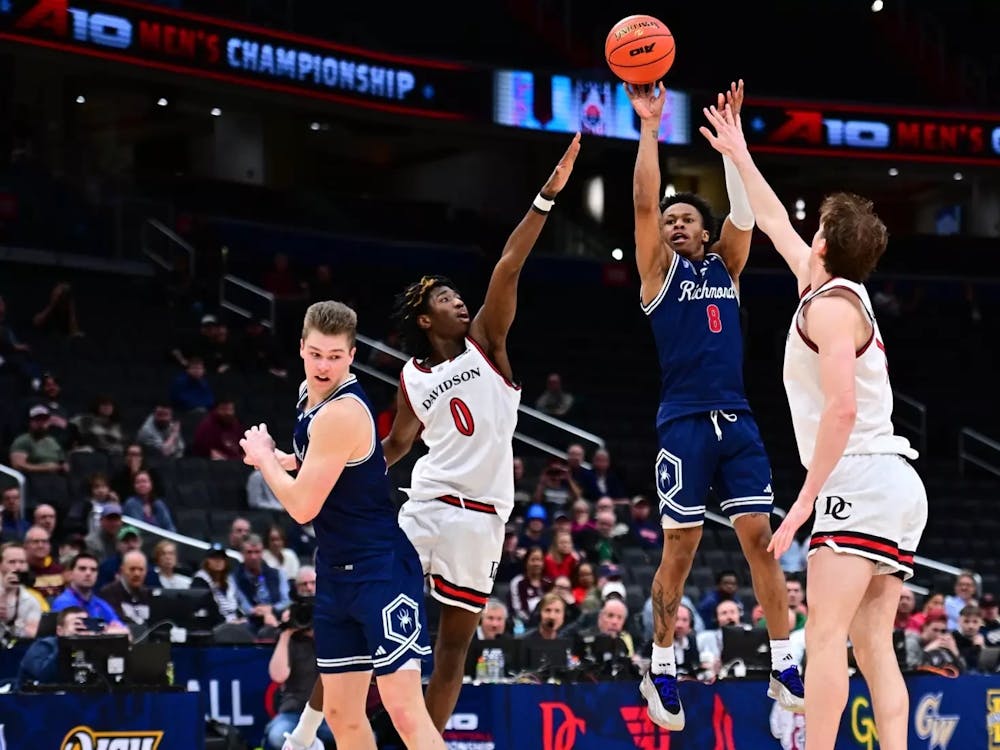The Wall Street Journal recently released its 2024 list of the 400 best colleges in America, and the University of Richmond is absent from the list after the WSJ implemented a recent change to its ranking policies.
After ranking 63rd in the WSJ’s 2022 rankings, this comes as a surprise to UR students and faculty. Other notable Virginian universities such as the College of William and Mary, Virginia Tech and Virginia Commonwealth University were all included in the top 400, but UR did not make the cut.
However, this isn’t due to a steep decline in quality, but rather a lack of survey participation. Tom Corrigan, a rankings reporter for the WSJ who is an author of the “2024 Best Colleges in the U.S.” list and partnering article, said the reason UR wasn’t listed was because the requisite 50 student surveys weren’t received.
A notable change in this year’s WSJ college ranking criteria was that 50 valid responses from verified students or recent alumni had to be received for a college to be eligible. Student surveys were conducted through U.S College Pulse, which according to a live Q&A was one of the largest surveys of U.S. students ever conducted. Nonetheless, Corrigan said the primary reason schools were not included was because not enough student surveys were received.
Sunni Brown, the director of media and public relations at UR, wrote that she noticed UR’s absence from the list along with several other prestigious universities.
“Apparently, their total population of ranked schools fell by 1/3 from the prior year (from about 600 to about 400), which could be based on a change in their data collection process and methodology,” she wrote in an email to The Collegian.
In contrast, first-year Olivia Perkins said that she did not notice UR’s sudden drop in rank but did look at college ranking lists when making her college decision.
“I was aware of the rankings of schools when I was applying, but the lists did not affect my decisions that much. Now that I’m in college, I don’t check the lists,” she said.
In addition to the inclusion criteria, the WSJ also revised its methodology. This new methodology was formulated with the idea of putting greater emphasis on measuring the value added by colleges. Student outcomes accounted for 70% of the rankings, the learning environment accounted for 20% and diversity accounted for 10%, according to the full methodology report found in the rankings.
“Gone is the survey of academics on schools’ reputations. Gone are the rewards for instructional spending and the assumption that the quality of education is largely dictated by how expensive it is to produce,” wrote Harry Carr, a rankings reporter for the WSJ, in a separate article concerning the new methodology.
The new methodology places much more emphasis on student outcomes than in the past, Corrigan said.
“We thought it was appropriate to focus less on things like institutional spending or perceived academic reputation and focus on graduation rates primarily and how much money are students making in the years after they graduate,” he said.
Enjoy what you're reading?
Signup for our newsletter
The WSJ’s college rankings are relatively new, starting with the initial list released in 2016. Every list released contains a link to the methodology used, and it is visible that the methodology used in 2016 has since undergone significant evolution through yearly adjustment. This raises questions, such as whether there is an ideal formula for college rankings that ranking reporters are trying to figure out.
In response to this question, Corrigan said that as a reporter, he uses the most robust and recent data that can be found and does the best he can, but he believes there is no one perfect way of ranking colleges.
Corrigan and Carr made it clear that while rankings lists can provide valuable insights during a college search, it’s essential to remember that the definition of a good college is highly subjective.
“As with any big decision, the best college on this list may not be the best for everyone,” Corrigan wrote.
Contact news writer Jasmine Velasquez at jasmine.velasquez@richmond.edu.
Support independent student media
You can make a tax-deductible donation by clicking the button below, which takes you to our secure PayPal account. The page is set up to receive contributions in whatever amount you designate. We look forward to using the money we raise to further our mission of providing honest and accurate information to students, faculty, staff, alumni and others in the general public.
Donate Now



